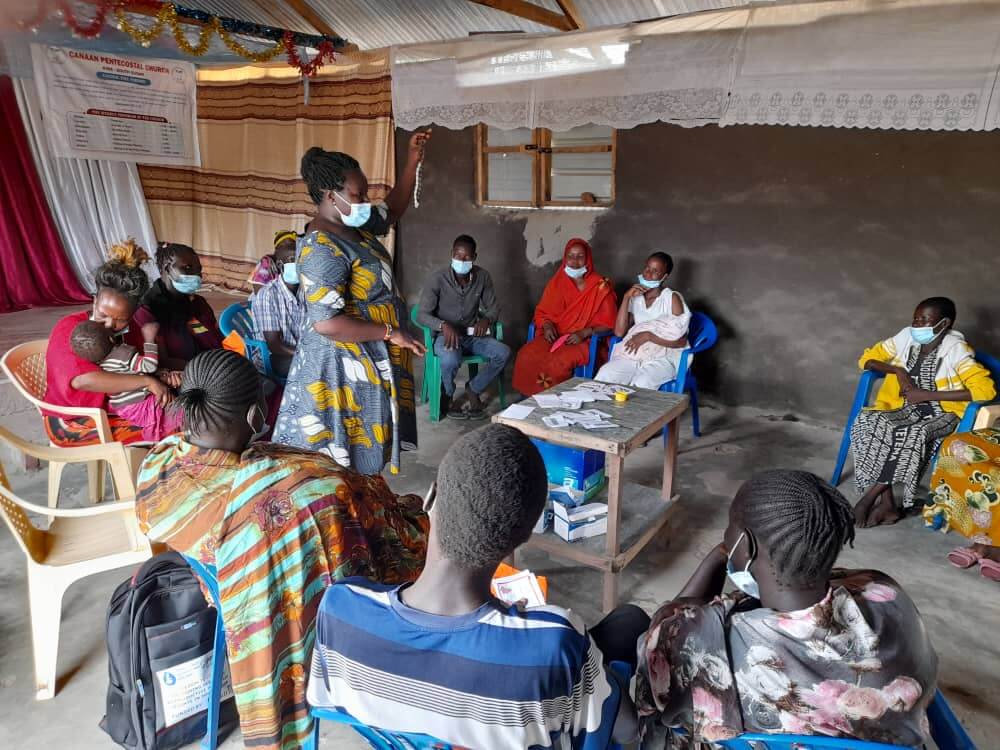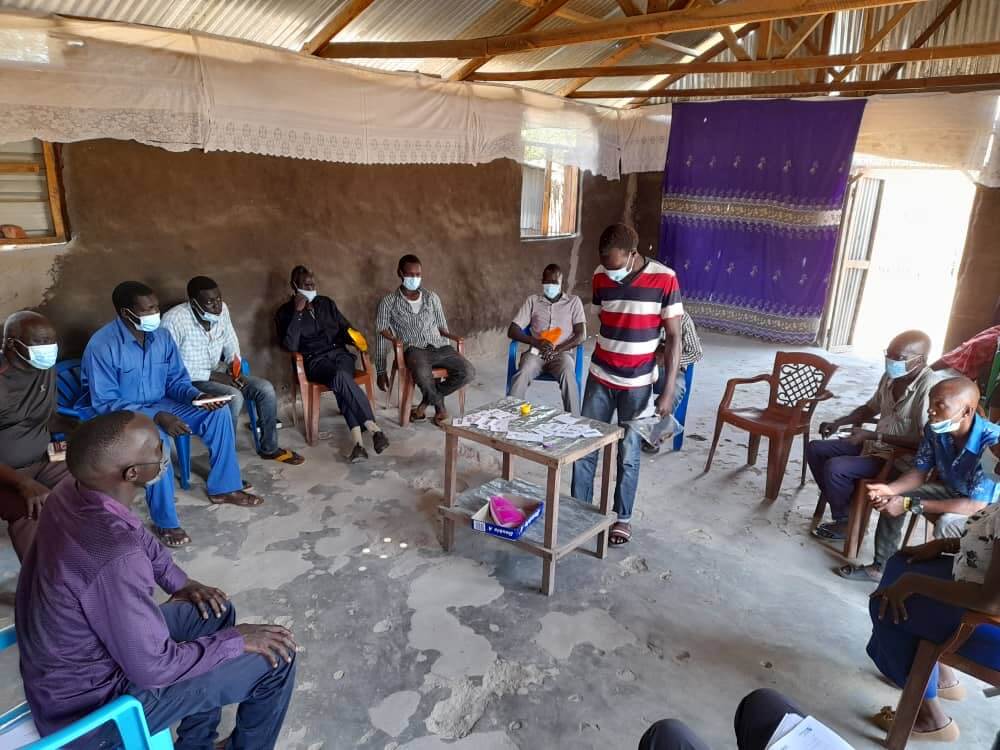Normalizing Family Planning Conversations in South Sudan
HIGHLIGHTS
- Men play an important role in their partners’ decisions about contraceptive use, but outreach and education programs—which typically target women—often fail to reach them.
- We’re developing solutions that aim to increase comfort with and support for family planning, encourage open conversations between partners, and motivate couples to access family planning information and services.
The Challenge
The use of modern contraceptive methods in South Sudan remains among the lowest in the world, contributing to high maternal and child mortality rates. Engaging couples to consider, discuss, and make decisions about the options available to them is a critical step to expanding meaningful access to contraceptive services.
Men commonly have decision-making authority in the household, including over reproductive decisions. However, couples rarely discuss their perspectives and preferences about childbearing and family planning openly. When men are not reached by efforts to boost awareness and knowledge about family planning, they can feel intimidated and uncomfortable with the topic, making it even harder to start a conversation.
Our Approach
This work, under the USAID-funded Breakthrough ACTION project, builds on a solution set in Uganda that seeks to increase men’s engagement in family planning decisions and empower women as active joint decision-makers about contraceptive use.
To adapt the solution set to the South Sudanese context, we are engaged in a participatory design process with local stakeholders and community members. Together, we’re working to build a package of tools—including an interactive game—that support outreach efforts to men and women, enabling them to learn more about their options, build familiarity and comfort with open conversations about childbearing and contraceptive use, and elevate the perspectives and needs of women in couples’ choices.
The interactive game normalizes the discussion and consideration of family planning, requiring players to work within “households” to build family harmony. Throughout the game, players learn about family planning methods, make choices and see the consequences of those choices for their families, and have opportunities to practice talking about sensitive topics in a safe space. At the end of the game, players receive a planning card. The card encourages players to continue conversations within their own families and to discuss family planning options with a health worker when they are ready to learn more.
Takeaway
An interactive game offers a safe environment for couples to learn, consider, and discuss a sensitive topic. By allowing couples to navigate decisions and see their consequences in a game setting, we can support them to identify how family planning services can help them to achieve their own goals for themselves and their families.
Interested in our work applying behavioral science to global health? Email gh@ideas42.org or tweet at @ideas42 to join the conversation.
Partners












